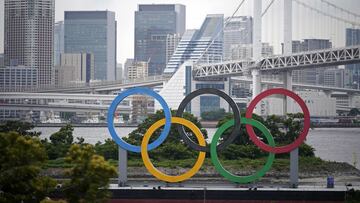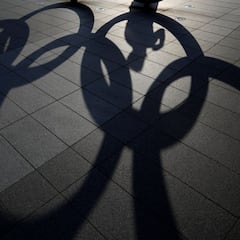What is the Olympic motto and who said it?
The Olympic motto has been used since the Paris Games in 1924 - and may be set for an update.

The Olympic motto is "citius, altius, fortius" - three Latin words that translate as "faster, higher, stronger". It was chosen by the French aristocrat Pierre de Coubertin, who founded the International Olympic Committee (IOC) in 1894.
"Citius, altius, fortius" first used in 1924
An educator who championed the role of sport in schooling, De Coubertin also served as the IOC’s second president and was the driving force behind the inception of the modern Olympic Games, which were first held in Athens in 1896.
The motto was first used at the 1924 Olympics in Paris - the eighth edition of the modern Games and the last of De Coubertin’s IOC presidency, which ran from 1896 to 1925.
Olympic motto borrowed from Dominican priest
He first heard the phrase “citius, altius, fortius” when his friend, the Dominican priest Henri Didon, said it at a school sports event in 1881. "These three words represent a programme of moral beauty," De Coubertin is quoted as saying.
According to the IOC, the motto "expresses the aspirations of the Olympic Movement not only in its athletic and technical sense but also from a moral and educational perspective".
See also:
Change to motto proposed
Related stories
The current president of the IOC, Thomas Bach, has proposed changing the Olympic motto by adding in the word “together” after a hyphen, to make: "faster, higher, stronger - together". In Latin, it would become "citius, altius, fortius - communis".
Bach's idea was endorsed by the IOC Executive Board in April, and a proposal to alter the motto in the Olympic Charter may now be tabled at the IOC Session in Tokyo in July.

